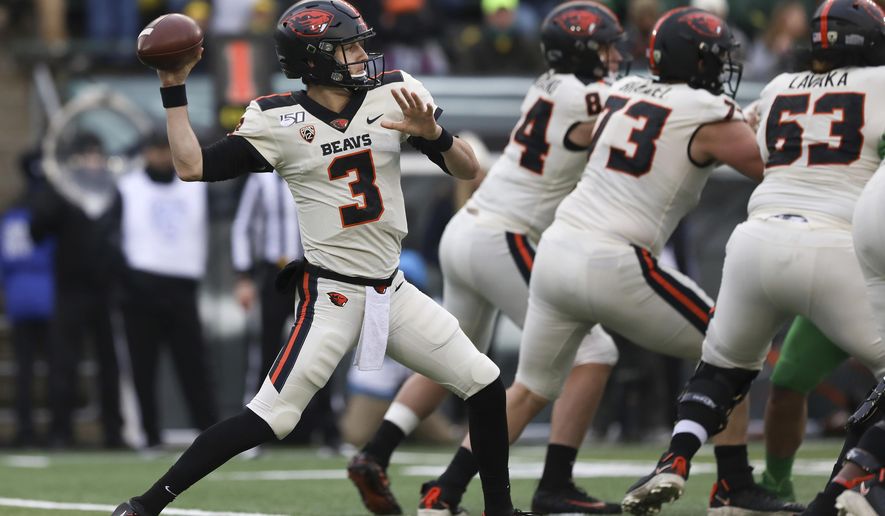
It was Thursday morning last week when I scrolled through the daily news and I found myself in disbelief as I stared at The Oregonian’s header on my phone screen “Luke Heimlich sex crime surfaces as Oregon State baseball nears College World Series”.
I had to stop myself short. Had I misread the information? Was The Oregonian breaking the news about Oregon State University’s star pitcher Heimlich being a registered sex offender? While this sadly could have been just another story to read, this was no ordinary one as Heimlich is known as THE pitcher in college baseball. Not only has he helped OSU make it to the College World Series with a stellar pitching season, he has been known as the best pitcher in the nation in college baseball.
As I reviewed all the information in the short script, as a former Chief Juvenile Probation Officer who happened to have worked close with juvenile sex offenders, I had 100s of questions upon completion of my read. “How did a sex offender make it through the OSU’s admission screening and eventually stardom?” Having had experience in the field, I know how tight and restrictive the law is about those type of crimes. I continued to wonder in awe. With nothing to go by other than The Oregonian’s report, it was hard to understand how all of this unfolded so fast.
The obvious question of course is: “Why has he been allowed to play?” I certainly understand the outrage and shock in public opinion, yet at the same time, there are many questions and not for Heimlich per say, but the whole college athletics world.
The culture of abuse (of any type) amongst athletes has become a haunting discussion for most. In fact, the specifics of a crime have not only found the abuser as guilty in some cases, but also school administrators who have failed to act and stop the crime at times. As we look at this specific case, we have to stop and ask ourselves; To what degree are officials responsible for having gotten this far?
A high-profile case and great example of where officials did not intervene is the “Sandusky” case. Not only was the former defensive line coach found guilty of 45 out of 48 sexual abuse counts, but a week ago, Graham B. Spanier, former Penn State president was convicted of child endangerment as well.
Needless to say that the Heimlich case is one to step back and analyze with all of its unique specifics and circumstances as well. Of course, as public opinion and officials review the incident at hand, it would seem that “as always” the victim is the one least spoken of. Other than apologies from Heimlich himself, OSU’s Pat Casey expressing sympathy for her, no other group has stepped up to say, we must be sensitive as there is a young victim at hand.
Heimlich’s case brings a unique set of characteristics that we had not experienced or witnessed before-we could perhaps label it as unpredictable. Nevertheless, it is another example of what happens when athletic talent outweighs the importance of a victim (or potential victims). To help you, our reader, understand the timeline of events, here is a brief description for your review:
2011: The Offense – Court records show, a 15-year old Heimlich pleading guilty to sexually molesting a six-year old girl, who, as described by the report was family.
2012: The Sentence – Heimlich was sentenced to enter a juvenile diversion program. He received two years of probation and was ordered to attend a sex offender treatment for two years. In addition to the probation sentence, Washington’s Juvenile Rehabilitation issued him 40 weeks of detention (suspended) as long as he successfully completed probation.
2014:
- Puyallup High School – Lettered in 2014 for head coach Marc Wiese.
- Oregon State University – Heimlich arrives to OSU in the Fall of 2014 as a freshman and joins the college’s baseball team.
2015: OSU Baseball • Pitched in 29 games, making two starts, and posted a 2-5 record and 3.61 ERA in 52 1/3 innings.
2016: College Baseball Highlights:
- Pac-12 All-Academic Honorable Mention.
- 20 appearances, including 11 starts, and went 7-4 with a 3.53 ERA in 86 2/3 innings.
- Named the Pac-12 Pitcher of the Week on May 30.
2017: College Baseball National Stardom:
- Oregon State University baseball team moves toward the No. 1 overall spot in the NCAA tournament.
- Heimlich is labeled as not only one of the best, but the number 1 pitcher in the nation.
2017: Sex Offender Registry Violation:
- On April 3, Benton County sheriff’s sergeant issues Heimlich a violation for letting his sex offender registration lapse.
- May 18, Heimlich’s records become part of Oregon’s court records for the first time and his citation is dismissed.
- June 14, MLB’s Draft officially closes leaving Heimlich undrafted.
- June 15, OSU’s President Ed Ray releases an official statement: “Luke decided that he would no longer represent the university this year as a member of the baseball team… If Luke wishes to do so, I support him continuing his education at Oregon State and rejoining the baseball team next season.”
The Oregonian, a personal and public profile:
- Danny Moran, who covers the Oregon State baseball team for The Oregonian/OregonLive.com, interviews Heimlich in three different occasions starting in March. As he approaches the conclusion, he conducts a routine background check and comes across Luke Heimlich’s name showing him as been cited in April for failing to update his sex offender registration in Benton County. The Oregonian Newsroom decides to run the story on June 8.
Heimlich’s Attorney’s Statement:
– Heimlich through his attorney requests that he be excused from playing to prevent being a distraction to the team. In addition he issues the following statement of the events: “As a 16-year-old I was placed on juvenile court probation and ordered to participate in an individual counseling program. I’m grateful for the counseling I received and since then I realized the only way forward was to work each day on becoming the best person, community member and student I can possibly be, I understand many people now see me differently but I hope I can eventually be judged by the person I am today.”
We can all agree Heimlich has no ordinary life per say. Not only have crimes from the past caught up to his brilliant baseball present, but it has also unleashed a series of questions for college athletic programs as well as the society we are part [of]. This of course putting him at the center of public eye in one of the most controversial moments in college baseball.
Athletes, especially college athletes, have come to be known as suffering from “Athlete’s Privilege”. To some, it would seem to be that it has become a standard that college and professional athletes be given “a free pass” if their game is right. There have certainly been cases where the appearance of talent outweighing an offense, or worse the victim, happen more than it should at any time.
While a reasonable response to all of this remains pending, I have to admit there is a lot we still aren’t sure if it’s procedural misconduct or borderline illegal, both under college athletic rules and the country’s governing laws.
The Heimlich specifics highlight at best a gap within OSU’s admission process, at worst a troubling epidemic across D-1 universities. The question is: Does access to an education grants collegiate athletic privileges as well? Should there be a higher standard for those who will receive an education and intend to represent the institution in sports or other extra-curricular programs? According to OSU’s President Ed Ray issued statement June 15, there is not “If Luke wishes to do so, I support him continuing his education at Oregon State and rejoining the baseball team next season.”
While Heimlich has paid part of his dues to society, the fact is that other conditions remain in effect and have a lifetime term. With that said, to what extent is Oregon State liable for failing to notice that Heimlich’s registration had expired? Even more important, why the lack of communication between their office and the athletic department in such a serious manner? It has been a week since this surfaced and we finally get an official statement from OSU officials, clearly stating Heimlich’s past crimes do not prevent from being part of the student body or baseball program at OSU.
The question that remains: Are there policies addressing this type of circumstance, but more importantly, are they followed at all?
The next question of course, is for the Benton County’s office. As per court records, Heimlich’s citation was dismissed in May. There certainly is plenty of discretion to each officer of the court to make decisions such as this. But we must ask ourselves, knowing the location of Heimlich and the potential of interacting with potential minors at one point or another while in campus: How did they rationalize the dismissal overall? While his conditions of probation most likely ended, the sex offender registration is very explicit and the requirements to continue to register aren’t flexible at all. For an example of how rigid laws regarding sexual offenses really are at a global scale, take this waiver service company that issues Pardons Canada, their pardons, expungements, and waivers are ineligible to those that have committed a sexual offense, and this is a company that offers criminals second chances. So how did his case and his registration into the sex offenders list become dismissed?
The questions and answers have not stopped since last Thursday. Yes, we know that Luke Helmich paid his dues to society, but how did he forget he would never be truly “done”? The requirements of registration exist for a reason: To prevent any danger to potential victims; to protect the community. We must ask ourselves, without judgement, of course: Why the leniency to this specific individual and not for others who could’ve possibly violated their terms as well? Can we call it for what it is? Athlete’s Privilege and nothing more? Or do we give officials the benefit of the doubt and consider that this could be one of those cases that fell through the cracks.
The impact of this incident has opened up a can of worms. Questions and debate as to how college athletic departments function have been non-stop. At this point the message remains unclear. An example of the uncertainty of this case and how to even discuss it is shown very clearly in the Pac-12 Networks. As of two days ago, the entity circulated a memo suggesting ways to address the controversy. The reality is that without knowing how this will change admissions processes for those wishing to pursue an athletic program. No one truly knows how to talk about it. The fact that Pac-12 Networks are choosing the “safe” side by requesting that their team at all levels avoid the conversation as a whole, makes one wonder if this will truly be discussed at all.
This of course must be taken as a red flag of the potential issues not only for the school but for safety in a community overall. The dialogue must continue and actual interpretation of rights and privileges must be stated word per word. There should be no “gray area” as some have considered this to be. College sports are the backbone of all sports across the world. Without the proper policies and procedures, we continue to show reckless behavior and dismiss the need for a more alert system and one that not only provides opportunities to athletes but takes care of the community as a whole.
Since the information surfaced Heimlich’s has avoided talking at all. The seriousness of the report has certainly taken a toll on his current college and future professional career. His name was removed from several MLB draft boards within hours of the information coming to light. In fact, the number 1 college baseball pitcher wasn’t drafted at all. And while the discussion about how this “unfair” series of events has affected Heimlich’s career is a hot topic in social media and water cooler rooms, a lot of this could have been prevented if policies and procedures were more clear. More importantly, we must not forget the innocent victim in all of this. While Heimlich’s career could very well be done, there still remains a young girl who never asked for any of this, especially the abuse she went through.
This is another example of how college campuses’ officials and departments need to develop better processes, but more importantly implement them above all. Should they had aligned, perhaps Heimlich wouldn’t have to be retried for a crime he has already answered to the courts. But more importantly, the little girl in this case wouldn’t be re-victimized all over again because the case itself would’ve never made it back into the public light.
I am [a]strong believer of the power of rehabilitation programs and have witnessed them to be effective. However, said programs are only effective if all pieces work well. Should any of them go missing, such as a failure to register, the potential of re-offenses increases putting many at risk.
This is not a place to pick and choose what should be done regardless of the progress the offender has made. Heimlich’s accomplishments are commendable. But let us not forget that while he has been able to get through all of this and raise above the crime there is still a young girl in this world who can’t possibly understand why her life was turned upside down.
A girl who may not be able to fully function at all for the rest of her life. A girl who deserved the same amount of chances that all including Heimlich has had.
The reality is that we will never know the impact of the offense and continuing to discuss this as if the offender is a victim and forgetting about the impact on the victim is completely out of line. Actions speak louder than words. College athletic programs need to act and make the necessary changes to avoid this from happening again. This is serious and cannot be ignored. Let’s stop the progression of “Athlete privilege” and let’s value victims over athletic talent once and for all.





Lot of words to not have fully researched.
Heimlich enrolled in January. And here’s why his case was dismissed (from Portland Tribune):
“In Oregon, a juvenile sex offender from out of state is not required to register again on his 21st birthday. Were Heimlich a resident of Oregon or convicted in Oregon, he would have had to. As a Washington resident attending college in Oregon, that part of the law did not apply to him.”